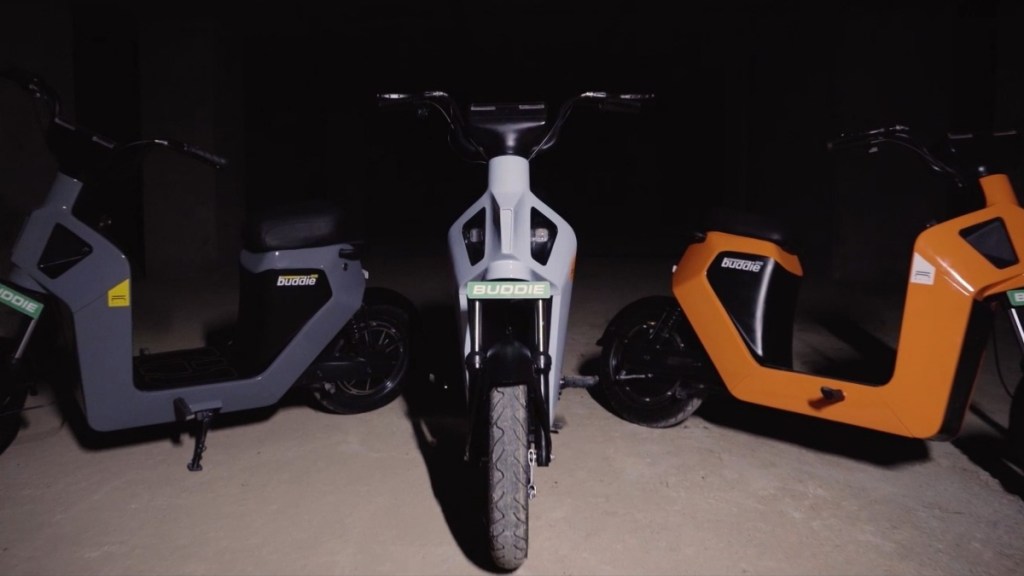By Pritesh Mahajan, Co-Founder, and CEO of Revamp Moto
The Indian electric vehicle industry is thriving and witnessing a faster jump in EV adoption with more and more individuals moving towards green mobility. While the demand shoots up higher, there is a faster need to adopt seamless practices right from manufacturing to supply chains along with also focusing on the after-sales customer and vehicle requirements.
The Government of India has ambitious goals for the adoption of electric vehicles (EVs), with an aim to achieve 30% EV penetration by 2030. To support this goal, the country has begun making significant investments in EV manufacturing and supply chain development but there are still significant challenges that need to be addressed to fully realize the potential of the EV industry in India.
Looking deeper into the challenges in the EV manufacturing segment
One of the biggest challenges facing the EV industry in India is the limited domestic manufacturing of EV batteries. The country is currently heavily dependent on imported batteries to power electric vehicles (EVs), which can be costly and make the supply chain susceptible to disruptions. This is why the government is determined to promote domestic battery manufacturing capacity – a move that will not only be essential for India to attain energy security but also to reduce its carbon footprint.
However, expanding the domestic battery manufacturing capacity will require significant investment in research and development (R&D) and infrastructure. To increase the manufacturing of batteries, India needs to establish a robust battery value chain, including raw material production, cell manufacturing, and module assembly. The country needs to work towards building a self-sufficient EV industry and reducing its dependence on other countries for battery supply.
The government has already initiated several measures to promote battery manufacturing, such as incentives, subsidies, and a new production-linked incentive (PLI) scheme to provide financial assistance to companies to set up battery manufacturing plants in India.
Integrating manufacturing & supply chain growth with an efficient charging infrastructure
Despite the government’s investments in charging infrastructure, the pace of development has been slow, and the lack of standardization in charging infrastructure can make it even more challenging for EV owners to charge their vehicles in different locations. This goes hand in hand with the manufacturing challenges and needs immediate action.
Another challenge that stands ahead of the industry is the limited pool of skilled workers in India with expertise in areas such as battery technology, power electronics, and software development, which is critical for EV manufacturing. This could limit the growth of the EV industry as the demand for skilled workers continues to rise.
How to transfer a driving license from one state to another
Moreover, the EV supply chain in India is highly fragmented, with many small suppliers providing parts and components. This fragmentation can make it difficult for manufacturers to manage their supply chains and ensure quality control, posing a challenge to the growth of the EV industry. Addressing these challenges will require significant investment in infrastructure, training programs to develop the necessary skills, and a more organized and integrated supply chain.
Having said this, it is important for industry leaders to recognize the opportunities that it holds in order to fully capitalize on them.
Roadmap to the Future: Opportunities in the EV Manufacturing and Supply Chains in India
Indian EV manufacturers have been receiving strong government support for the growth of the EV industry. Incentives and tax breaks have been provided to EV manufacturers to promote the manufacturing of EVs. The government has also expressed plans to invest in charging infrastructure and R&D in battery technology, further aiding the growth of the industry. However, executing this may take a while.
With a population of over 1.3 billion, naturally, the country has a significant market for EVs. As the cost of EVs continues to decline and the government continues to provide support and incentives for EV adoption, the domestic market for EVs is expected to grow at a rapid pace.
Another advantage is the low labor costs as compared to many other countries. This makes India an attractive location for EV manufacturing, particularly as the cost of EVs continues to decline.
Furthermore, there is immense potential for renewable energy, especially solar power. This presents a significant opportunity for the growth of the EV industry by providing a clean source of energy to power EVs and reduce reliance on fossil fuels.
With a detailed and holistic approach towards a more concrete penetration of green mobility, EV industry leaders and the government will be able to prepare a plan that ensures capturing opportunities while also overcoming significant challenges, particularly in the areas of battery manufacturing, charging infrastructure, and skilled workforce development.



















